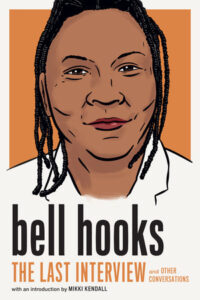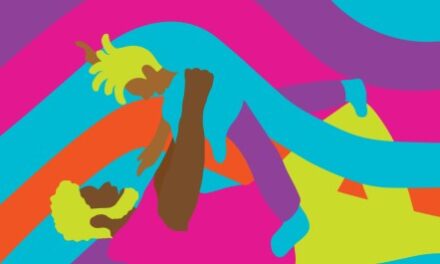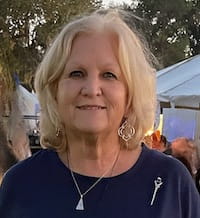“It is my deep belief that in talking about the past, in understanding the things that have happened to us, we can heal and go forward. Some people believe that it is best to put the past behind you, to never speak about the events that have happened that have hurt or wounded us, and this is their way of coping—but coping is not healing. By confronting the past without shame we are free of its hold on us.”
–bell hooks, Teaching Community: A Pedagogy of Hope
*
The evolution of bell hooks from Gloria Jean Watkins (born during Jim Crow to low-income parents) to global feminist icon is a journey that could have come right out of a propaganda film about the American Dream. She attended segregated schools as a child, but as an adult her work was taught in the same institutions that would have denied her entry because of her race and her gender.
Despite being born and raised in a time where Black women were expected to serve and not succeed, hooks defied all expectations and pursued her own dreams. When hooks assumed her pseudonym, taken from the name of her great-grandmother, to honor female legacies, she made a clear statement about who she prioritized as her role models and set herself on the path to becoming a role model for others. In many ways one of the reasons her work resonated with so many is because it tied together the impact and legacy of women’s history on the future of women.
I’ve written in the past about how hooks’s work is often an entry point to the academic theories of feminism, shared in a language anyone can understand whether they have a high school education or an advanced degree. Her ideas around race and gender and the impact of stereotypes have been woven deeply into the foundation of modern feminist thought, and yet she largely eschewed celebrity, preferring that the focus be on her words and not on her personally. In this way she spoke to those who might never occupy the spotlight, but who nevertheless wanted to contribute to building the next generation of feminism into something more inclusive and progressive.
In her work hooks also made it clear that to be in a feminist was to be in the community, not necessarily as a leader but as a member just like everyone else. As a writer and a Black feminist, hooks was well aware theory was important but theory was not enough, that it was tool for understanding, “I came to theory because I was hurting,” she wrote in her 1991 essay “Theory as Liberatory Practice.” “I came to theory desperate, wanting to comprehend—to grasp what was happening around and within me.”
Yet hooks didn’t shy away from challenging the idea that women couldn’t and shouldn’t be leaders, pointing out in “Agent of Change: An Interview with bell hooks” that “There are a lot of women out there who are able to lead, and the problem is that people will not follow them.” As social movements have shown us time and time again, it is the women who do the work and often the male figureheads who get the credit for the fruits of their unseen labor.
The leadership of women is rendered invisible because of the way social movements consciously and unconsciously replicate patriarchal norms. Reading her words on dominator culture and how it harms us in a college class was my turning point with seeing feminism as a movement that could include me.
I came to bell hooks late. I was already in my 20s, already a parent, and firmly fed up with the ways that white middle class feminism Othered me. But I didn’t have the right words to express how I felt yet, and so for me reading bell hooks was less revelation and more confirmation. It was maddening to come to feminism as a young Black single mother and find people like me described as a problem to solve with no recognition of our humanity.
So, the first time I read Ain’t I a Woman: Black Women and Feminism I felt seen, more than that I felt validated. It was the feminism that hadn’t included me or women like me that was the problem, not my inability to connect with the words of white feminists. Even though they wrote books that were hailed at the time as necessary and relevant reads, hooks made it clear that they were not above critique. As she said in Feminism is for Everybody: Passionate Politics, “we knew that there could be no real sisterhood between white women and women of color if white women were not able to divest of white supremacy.”
Creating for more than the white gaze or the male gaze was the goal.
As my own feminism evolved I came to understand that white supremacy, while rooted in misogyny and antiblackness, offers some white women a false idea that tying themselves to white patriarchal power structures would give them power too. It’s a siren song of hate, offering strength in being a handmaiden of oppression while obfuscating the reality that there is no equality or equity under the yoke of white supremacy. The reflection of power is about as substantive as moonlight, it provides no warmth, offers no life, it is just easy to romanticize.
When hooks wrote about power and how power relations are built into how we perceive one another; her work validated my personal belief that not looking away, being confrontational, rebelling against demands of being ladylike isn’t falling into the stereotype of being an Angry Black Woman, it is instead a way to short-circuit the power dynamics that seek to force women into perpetual subservience. As she talked about in her 1989 interview “Talking Back: Thinking Feminist, Thinking Black”:
It seems to me that we, as women, have a lot of difficulty with the whole issue of assertion of power. I often feel that a lot of the hostility that people feel towards me is that we simply do live in a world where women don’t often assert power, and that people get pissed off when women do.
Rejecting the idea that progressive social movements could function in isolation, she tied together feminism, civil rights, and even economics into all her conversations. In the six interviews in this book, you see how her understanding of these issues deepened across her life and how that thought process is integral to her definition of feminism, as “a movement to end sexism, sexist exploitation, and oppression.”
bell hooks changed our understanding of feminism and in doing so, changed the way we talk about everything from children to masculinity. And yet she never took herself too seriously, she understood that part of the work of being human, of being a revolutionary in community and communication with others is to be able to live even as you do the hard necessary work. As she said in a 2015 interview:
We cannot have a meaningful revolution without humor. Every time we see the left or any group trying to move forward politically in a radical way, when they’re humorless, they fail. Humor is essential to the integrative balance that we need to deal with diversity and difference and the building of community.
She knew that for a community to be healthy, it had to be happy at some points even if joy was hard to hold onto every day. And that communities started with families, whether they were nuclear, extended or found. Yet the structure of family, of individuals being present was not enough to tackle current oppression much less create a better future. Through that lens she interrogated the patriarchy not just as an overarching system, but in the way it impacted daily life.
Black masculinity was impacted by racism and patriarchy and thus Black families and communities were facing specific struggles. Yet narratives around Black masculinity often focused solely on men with minimal engagement with what it means to be both oppressed and an oppressor. Because hooks centered love in her work, she often highlighted the need for Black masculinity to center love for the self and for others.
The reflection of power is about as substantive as moonlight, it provides no warmth, offers no life, it is just easy to romanticize.
In the same vein hooks engaged with hip hop’s ideals around Black masculinity and its role in the nuclear family, pushing back against the idea that only a Black male presence was required to make a happy healthy Black family. In an interview with Lawrence Chua, she speaks to her conversations with hip hop icons.
When I interviewed Ice Cube, he was insisting on the power of the Black father in the home. I was yelling, “Are you really trying to tell me that if you have unloving Black fathers in the home, we’re going to have a generation of healthy kids?” Finally, he acknowledged that just having a father present who’s not caring is really not going to produce some healthy children. That’s the kind of exchange that we should be trying to bring to the floor and not these simplistic representations of sexism and misogyny.
In this way hooks regularly challenged Black culture to not just reinvent itself in the face of outside oppressors, but to consider what was being built and how it would impact the future. Though she did not always agree with the focus of other Black icons, she largely centered her critiques on impact, challenging thought leaders and artists to consider their sometimes outsized impact in a society that tried to limit Black creativity to what would be palatable to white audiences. Creating for more than the white gaze or the male gaze was the goal.
Reading her interviews, it is clear the work you do, the work that any of us do, must be rooted in community and care or it is more likely to be harmful than helpful. For the world at large bell hooks was less person and more cultural touchstone. For me, and I suspect lots of other people, she was someone that made me feel welcomed and wanted and worthy in an exclusionary space.
But like any icon, her place is less on a pedestal and more in conversation with her work and how it changed across time. Intent is never more important than impact, and while hooks is widely and rightfully celebrated, she is as subject to critique as any other icon. Aware of that reality her interviews also highlight the ways that her thoughts evolved over time. She never stopped asking questions of others and of herself.
Her opinions on femininity and bodies were sometimes conflicting and even difficult to absorb, yet she never expected to always be popular. In fact she often challenged the popular to explain their work, their image, and their choices beyond what was commercially successful. She was comfortable making people uncomfortable, challenging them to ask hard questions and interrogate the logic behind their positions.
In this way bell hooks taught us another unforgettable lesson, that those who do some of the hardest work to make change possible will have missteps. The mythos that arises after an icon passes away hinges on their complexities being forgotten in favor of a handful of favorite and easy to absorb quotes. In the way of all icons, when that happens there is a danger of context being forgotten as well.
But bell was more than her best quotes, more than her awards and successes, and the best way to honor her work is to think critically about what she said in her time as well as understanding that her experiences may not always be relevant. To remember the full, complicated person she was and learn from her is wrestle with her growth, her flaws and understand that no feminism, no feminist could ever be perfect.
As hooks herself said, “For me, forgiveness and compassion are always linked: how do we hold people accountable for wrongdoing and yet at the same time remain in touch with their humanity enough to believe in their capacity to be transformed?”
________________________________________
Original introduction by Mikki Kendall, excerpted from bell hooks: The Last Interview (published by Melville House, 2023).





